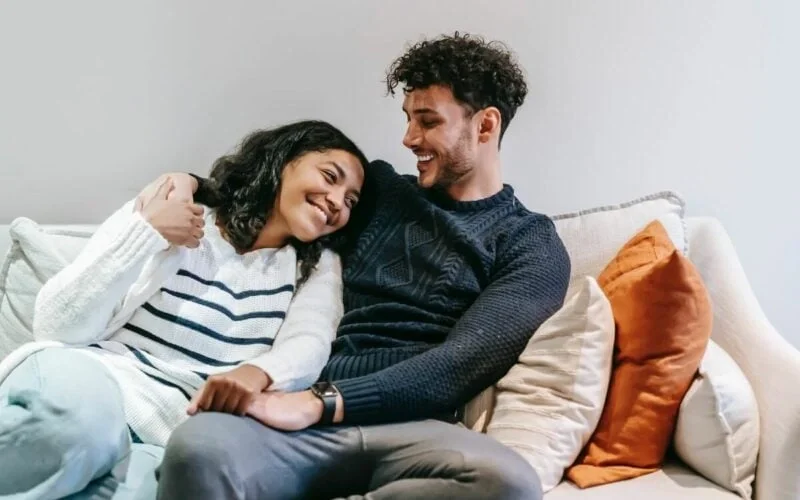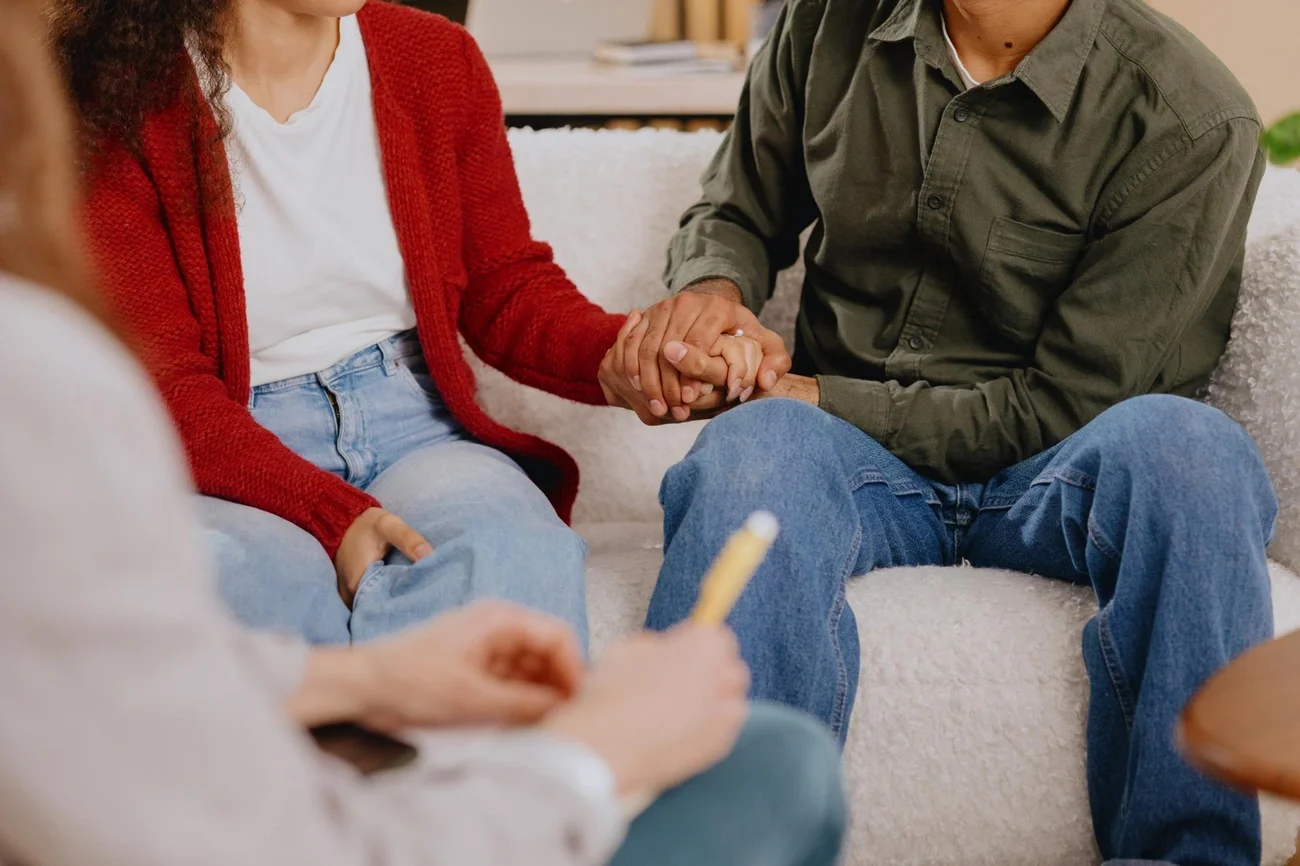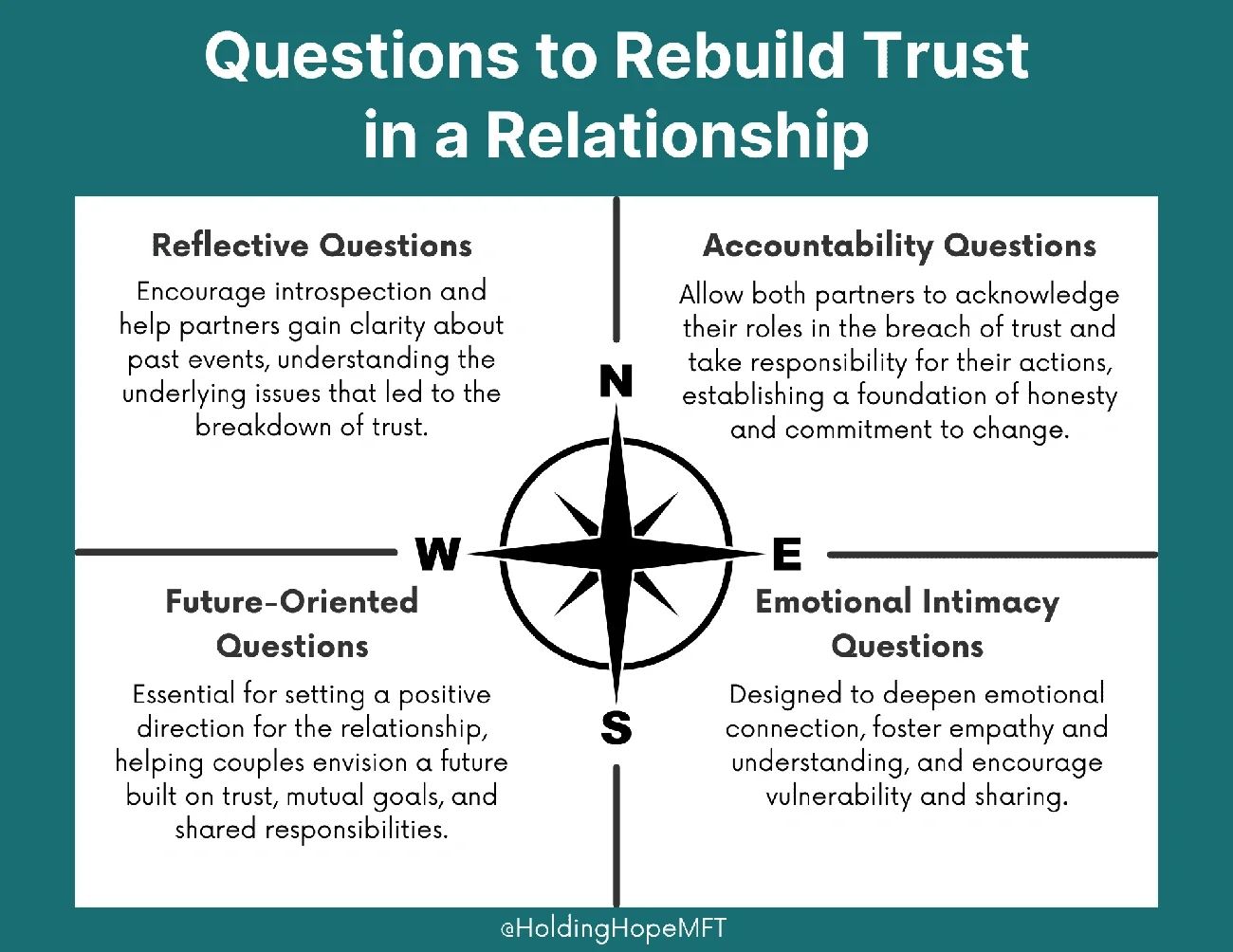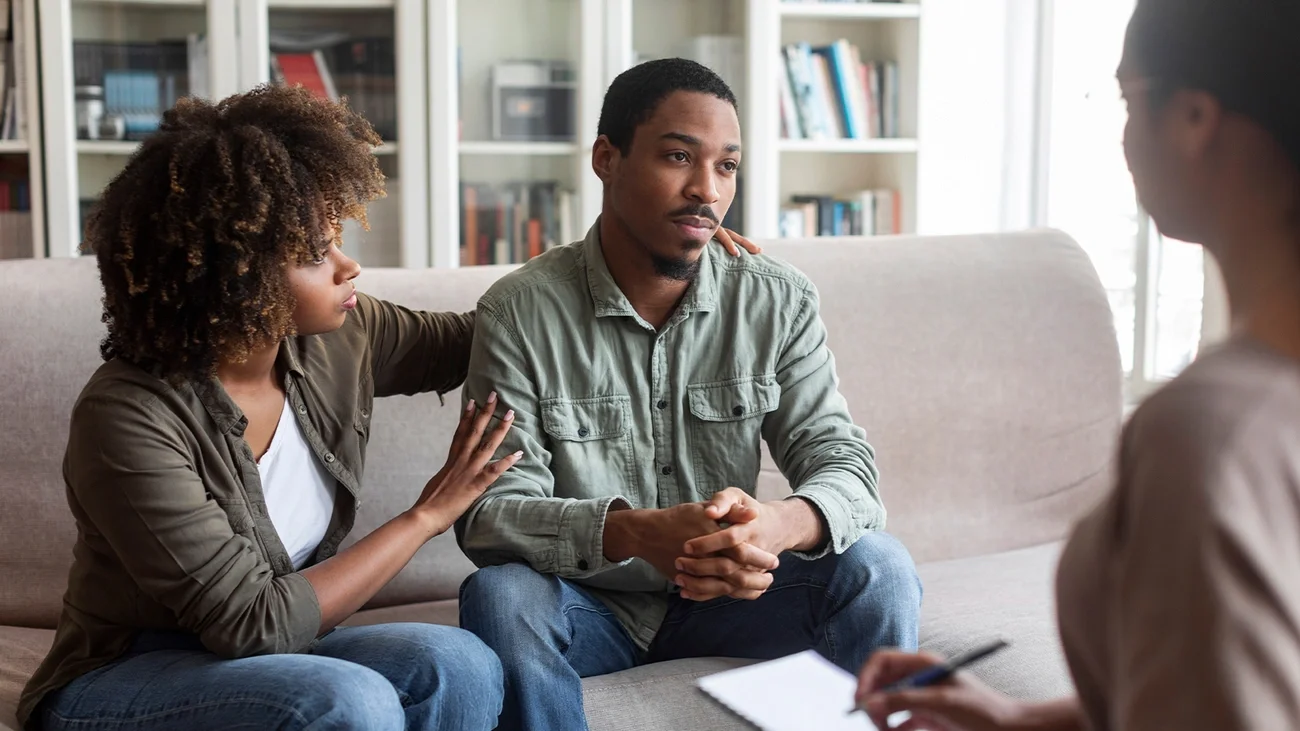Signs Couples Therapy Works: A Therapist's Success Guide
Do couples therapy work? My clients ask me this question a lot before they take this big step in their relationship.
The research paints a clear picture. About 70% of couples see positive changes after therapy . The numbers look even better with Emotionally Focused Therapy (EFT), where 75% of couples report improvements . Studies back this up consistently - 70% of couples say therapy helped them .
Many couples want to know if therapy will help their unique situation. Therapy gives partners tools to build stronger connections and tackle the problems that create distance and unhappiness . Your relationship can grow stronger and more resilient if you spot the warning signs early and get help .
Let me share seven clear signs that show therapy is making a difference in your relationship. These progress markers will show you that positive changes are happening between you and your partner.
Improved Communication Between Partners
Effective communication between partners shows that couples therapy works. Partners who once found it hard to express themselves now share openly and listen carefully. This marks real progress.
What improved communication looks like
Better communication shows up when both partners use "I" statements instead of pointing fingers. They learn to say "I feel unheard when I'm interrupted" rather than "You never listen" [1]. On top of that, partners learn to listen actively. They set aside time to talk without distractions and keep eye contact to show they care [2]. Each partner naturally repeats what they've heard to make sure they understand [1]. Partners learn to accept each other's feelings without judgment, even if they don't agree [1].
Why communication matters in relationships
Communication is the life-blood of healthy relationships [2]. Good communication builds trust, and studies show this leads to better sleep and overall well-being [3]. Couples can solve their problems better when they talk openly instead of getting stuck in misunderstandings [3]. Research shows that couples who communicate well are statistically more likely to maintain longer, happier relationships [4]. Partners who talk effectively can line up their goals and values to create a shared future vision [5].
How couples therapy helps improve communication
Couples learn specific techniques in therapy sessions, like the Speaker-Listener method. One person speaks while their partner listens carefully before repeating what they heard [1]. The therapy room becomes a safe space where both partners can be honest [6]. Studies show that couples in therapy do better than 70-80% of individuals not receiving treatment [7]. Therapists help spot unhealthy patterns like being defensive and teach better ways to communicate [8].
Therapist's point of view on communication breakthroughs
I call it a major breakthrough when couples stop trying to "win" arguments and start understanding each other's views [1]. Seeing partners show curiosity instead of criticism is the best sign of progress. Couples who use their communication skills outside our sessions make me confident that therapy works. They time their conversations well, notice body language, and set healthy boundaries [9]. My clinical experience shows that better communication comes before other improvements, which reliably indicates therapy success.
Conflicts Are Resolved More Constructively
Couples therapy changes how partners deal with their disagreements. Conflict isn't the real issue—the way couples handle it shapes their relationship's health.
What constructive conflict resolution looks like
Partners who resolve conflicts well use "I" statements rather than accusations and listen without interrupting [10]. They reflect what they hear to ensure clear understanding and keep emotions in check through mutually agreed rules [10]. Taking strategic breaks of 5-10 minutes helps when emotions run high [10]. Research reveals that couples who work through disagreements effectively end up feeling closer and more satisfied [11].
Why conflict resolution is a key relationship skill
Relationship skills form the foundation because about 69% of problems between couples can't be solved [12]. Couples who direct their disagreements with respect build stronger bonds by learning each other's values and viewpoints [11]. The relationship's strength depends on how partners handle conflicts, not whether they have them [11]. Healthy conflict management builds emotional connections and creates room to grow [9].
How couples therapy teaches conflict resolution
Therapists build safe spaces where couples tackle tough issues without emotional escalation [10]. The Emotionally Focused Therapy (EFT) framework helps them spot triggers and stop negative patterns [10]. Mindfulness techniques help partners stay present and reduce stress during conflicts [10]. Couples master Gottman Method techniques to turn "gridlock" into meaningful dialog when dealing with ongoing issues [12].
Therapist's perspective on conflict transformation
My work shows real progress when couples stop fighting and start resolving conflicts productively [1]. Partners learn about behavior patterns that drive their disputes through therapy [1]. They develop specific strategies that encourage teamwork instead of competition [1]. Nothing makes me more optimistic than seeing couples use these skills on their own—they solve differences constructively without needing my help [1].
Emotional Intimacy Is Rebuilt
Couples therapy shows real progress when partners rebuild their emotional intimacy. Their relationship changes at a deep level as they learn to open their hearts again.
What emotional intimacy looks like post-therapy
After therapy, couples share their deepest thoughts without fear of judgment or rejection [13]. They show real interest in each other's experiences and confirm emotions even when they disagree [14]. Partners become more vulnerable and openly talk about their insecurities and fears [5]. They understand each other's emotional needs without asking and respond with empathy instead of getting defensive. Relationship experts say couples feel deeply connected, supported, and in sync when their emotional intimacy grows stronger [15].
Why emotional connection is essential
Strong emotional bonds are the foundations of happy, lasting relationships. Studies show that couples who stay emotionally close have better satisfaction, communicate better, and fight less [13]. Relationships without emotional intimacy often lead to more conflicts, less sexual desire, and feelings of distance [13]. Good emotional connections also help people live longer, healthier lives [13]. Relationship expert Laura Caruso says, "Emotional intimacy lays a foundation of trust, understanding, and deep connection, essential for a strong and enduring partnership" [5].
How therapy promotes emotional reconnection
Couples learn to spot and express their feelings constructively during therapy sessions. The therapist creates a safe space where both partners can express their needs [4]. They practice understanding their partner's emotions, which helps them feel deeply understood [16]. Therapy works especially well to help with past traumas that affect current relationships [17]. Therapists also help rebuild trust through "corrective emotional experiences" where partners receive healing responses different from their past experiences [16].
Therapist's viewpoint on emotional healing
My experience as a therapist shows that emotional healing starts when couples understand "we get hurt in relationship and we heal in relationship" [16]. Partners make real progress when they stop protecting themselves and reveal their true feelings. Taking this risk creates space for genuine connection. They heal more deeply when they absorb the compassionate responses from therapy and treat each other more kindly [16]. The biggest breakthrough happens when partners stop seeing each other as threats and become allies in building a secure, loving bond.
Trust Is Being Reestablished
Broken trust causes deep pain in relationships. Watching couples slowly rebuild their bond shows that therapy really works.
What rebuilding trust looks like
Partners who regain trust naturally share details about their plans and activities. They keep their promises and set clear boundaries together. Trust doesn't come back through big dramatic actions - it grows through small, everyday moments that slowly bring back feelings of safety. Eventually, couples stop checking up on each other and feel secure again.
Why trust is foundational in relationships
Trust gives couples the comfort they need to rely on each other. It's the life-blood that helps you build a meaningful relationship. Trust grows from five elements: spending time together, being reliable with duties, understanding each other, putting the relationship first, and showing gratitude for your partner's efforts. You can't be open or vulnerable without trust because you'll always protect yourself defensively.
How therapy helps rebuild trust after betrayal
Couples find a safe environment in therapy sessions where they can speak honestly without judgment. The therapist makes it easier to have structured talks where both partners can state their feelings about broken trust. Couples learn to understand how betrayal affects emotions, take responsibility, and become more open. Therapy works especially well when you have to talk about past hurts while moving forward positively.
Therapist's perspective on trust recovery
My experience as a therapist shows that rebuilding trust takes time - you can't rush it. The healing experience needs both partners to understand that forgiveness happens gradually, not all at once. Rebuilding trust needs consistent, reliable actions over time. The best sign of progress comes when partners start being open and dependable outside therapy sessions naturally. Couples show therapy works when they stop seeing each other as threats and become allies in rebuilding their foundation together.
You and Your Partner Are More Aligned on Goals
A couple's therapy shows positive signs when partners build a unified vision for their future together. Their relationship finds new purpose and direction as they move from feeling disconnected to lining up their goals.
What alignment on goals looks like
Partners show goal alignment when they support each other's dreams while working on shared objectives. They talk about big decisions together and create detailed action plans. Both partners value each other's career goals yet stay focused on their shared path forward. They show mutual support by tracking progress and celebrating wins together.
Why shared goals matter in long-term relationships
Clear direction and purpose come from shared goals that encourage unity and teamwork. Studies show that couples with mutual objectives feel more satisfied in their relationships. These common aims build a partnership where both people feel invested in their future. Of course, shared goals help couples direct themselves through tough times by offering a framework for decisions.
How therapy helps couples align their visions
Partners start therapy by identifying personal dreams before they find areas of overlap. A therapist helps them understand each other's priorities and see shared values as building blocks for their goals. Couples learn vital communication skills to discuss future plans in a constructive way.
Therapist's perspective on goal-setting success
My clinical experience shows that couples become teammates instead of opponents when they line up their goals successfully. Partners learn what matters most in their relationship beyond surface complaints through goal-setting. A shared vision acts as a powerful motivator that gives couples direction and strengthens their dedication to grow together.
Physical Intimacy and Affection Return
Physical touch and affection signal powerful healing as relationships recover. This reconnection shows that couples therapy creates meaningful change that goes beyond words.
What renewed physical intimacy looks like
Partners break their silence about topics that shame or embarrassment often cloud. They start to initiate non-sexual touch—holding hands, hugging, or casual caresses—without expectations. This foundation naturally leads to playfulness, desire, and deeper physical connections.
Why physical connection is important
Our bodies are wired for physical connection - it's a basic human need. Research shows that physical affection releases oxytocin that reduces stress hormones and builds stronger bonds. Intimate touch builds feelings of safety, trust, and emotional closeness. Research indicates that couples who touch each other more often have better relationship satisfaction [18].
How therapy addresses intimacy issues
Couples therapy offers a safe space where partners can identify what blocks their physical closeness. These blocks might come from unresolved conflicts, body image concerns, or mismatched desires. Therapists use techniques like sensate focus to encourage non-sexual touch and reduce anxiety about performance [7]. The therapy process helps couples make time for intimacy away from their relationship problems [8].
Therapist's view on rekindling passion
Physical reconnection follows emotional safety in my practice. Partners who feel secure being vulnerable naturally develop stronger physical intimacy. The best sign of progress? Couples who bring playful touch back into their daily lives outside therapy sessions.
You Feel Hopeful About the Relationship Again
The return of hope marks a crucial turning point in successful couples therapy. This happens at the time couples start to think about their future together again.
What renewed hope looks like
Renewed hope shows up in small but meaningful ways. Partners perform kind acts for each other and feel more affectionate. They can discuss uncomfortable truths without fear of backlash [6]. Therapy sessions become less intimidating as couples see results from their work. Their mindset moves from "we" thinking to a balance of individual and relationship needs [19].
Why hope is a sign of progress
Hope drives recovery and shows how well it's working [20]. The core of hope lies in choice. Couples who own their part in problems and take responsibility create paths to change [21]. This fresh sense of control helps them break free from feeling stuck. Hope gives them strength to handle relationship challenges [22].
How therapy restores optimism
Couples find a safe space in therapy to share feelings without judgment [23]. Therapists help partners develop deeper understanding and empathy for each other's viewpoints. Couples dealing with infidelity learn about affair triggers and rebuild trust through therapy [24].
Therapist's perspective on emotional turnaround
My experience shows that hope keeps relationships strong during tough times [25]. Research backs this up - 70-90% of couples attending therapy see positive changes [26]. The therapy journey lets me watch partners change from opponents to teammates. They rediscover their ability to connect with each other.
Conclusion
My experience as a therapist has shown me how couples can revolutionize their relationships through therapy. These seven signs show when therapy brings real results for partners who want to grow together.
Partners who see positive changes in their relationship just need patience and awareness. Better communication usually comes first, and healthier ways to handle conflicts follow. As time goes by, emotional closeness grows when partners create safe spaces to be vulnerable. Trust comes back through day-to-day actions, not big promises. On top of that, couples arrange their goals together, reconnect physically, and maybe even find new hope for their future together.
Progress rarely moves in a straight line. Couples usually see improvements in some areas while they work through other challenges. All the same, even small positive changes show that therapy creates lasting impact.
Without doubt, couples therapy takes courage and dedication from both partners. Being willing to look at uncomfortable patterns, try new skills, and stay open to feedback shows real strength. If you see these signs in your relationship, celebrate your progress while doing the work to be done.
Good therapy helps partners remember why they chose each other in the first place. The trip takes effort, of course, but couples who stick with it often build stronger bonds than before their problems started. Therefore, these seven signs show that your investment in therapy brings meaningful changes – making your relationship the supportive, fulfilling partnership you both want.
Key Takeaways
Recognizing when couples therapy is working helps you stay motivated and track meaningful progress in your relationship journey.
• Communication transforms from blame to understanding - Partners use "I" statements, practice active listening, and show curiosity instead of criticism during conversations.
• Conflicts become opportunities for connection - Couples learn to resolve disagreements constructively using strategic breaks and ground rules rather than fighting to "win."
• Emotional safety enables vulnerability - Partners share innermost thoughts without fear of judgment, rebuilding the deep emotional intimacy essential for lasting relationships.
• Trust rebuilds through consistent daily actions - Transparency, reliability, and following through on commitments gradually restore security between partners.
• Hope returns as the ultimate healing indicator - When couples begin envisioning a positive future together again, it signals the most meaningful therapeutic progress.
Research shows that 70-90% of couples attending therapy see improvements, with success rates reaching 75% for Emotionally Focused Therapy specifically. These signs often appear gradually and may not follow a linear progression, but recognizing even small positive shifts indicates that your therapeutic investment is creating lasting change in your relationship.
FAQs
Q1. How long does it typically take to see results from couples therapy?
The timeline for seeing results from couples therapy varies, but many couples report noticeable improvements within 8-12 sessions. However, significant and lasting changes often require several months of consistent work both in and outside of therapy sessions.
Q2. What are some signs that couples therapy isn't working?
Signs that couples therapy may not be effective include continued escalation of conflicts, lack of effort to implement new skills outside of sessions, one partner dominating conversations, or feeling consistently worse after therapy appointments. If you experience these issues, discuss your concerns with your therapist.
Q3. Is it normal to feel worse before feeling better in couples therapy?
Yes, it's common to experience some discomfort or heightened emotions early in the therapy process as you begin addressing underlying issues. This "therapeutic crisis" often precedes breakthroughs and is a normal part of the healing journey for many couples.
Q4. Can couples therapy help if only one partner is willing to attend?
While it's ideal for both partners to participate, individual therapy focused on relationship issues can still be beneficial. One partner's growth and changed behaviors can positively impact the relationship dynamic, potentially motivating the other partner to engage later.
Q5. How do we maintain progress after completing couples therapy?
To maintain progress, continue practicing the communication and conflict resolution skills learned in therapy. Schedule regular check-ins to discuss your relationship, be proactive about addressing issues as they arise, and consider occasional "booster" sessions with your therapist to reinforce positive changes.
References
[1] - https://www.drkimberlyflemke.com/blog/1305344-why-couple-therapy-is-so-effective-in-improving-conflict-resolution-skills
[2] - https://www.betterhealth.vic.gov.au/health/healthyliving/relationships-and-communication
[3] - https://www.verywellmind.com/communication-in-relationships-why-it-matters-and-how-to-improve-5218269
[4] - https://beboldpsychnc.com/journey-to-emotional-intimacy-in-couples-therapy/
[5] - https://www.paired.com/articles/emotional-intimacy
[6] - https://www.wellmarriagecenter.com/signs-marriage-counseling-is-working/
[7] - https://www.mentalhealthctr.com/addressing-intimacy-issues-through-couples-therapy/
[8] - https://www.gottman.com/blog/10-ways-rekindle-passion-marriage/
[9] - https://students.ouhsc.edu/news/articles/embracing-conflict-how-it-can-strengthen-your-relationship
[10] - https://advancedtherapyma.com/couples-therapy-conflict-resolution/
[11] - https://www.shieldbearer.org/conflict-resolution-strategies-for-couples/
[12] - https://www.gottman.com/blog/managing-vs-resolving-conflict-relationships/
[13] - https://www.psychologytoday.com/us/blog/the-discomfort-zone/202408/emotional-intimacy-the-key-to-a-resilient-and-fulfilling
[14] - https://drmessina.com/the-importance-of-emotional-intimacy/
[15] - https://embodywise.com/what-is-emotional-intimacy-and-its-importance-in-relationship/
[16] - https://integratedcareclinic.com/blog/i-didnt-know-it-was-going-to-be-like-this-a-relational-perspective-on-the-healing-journey/
[17] - https://feelingsfound.com/blogs/beneath-the-feelings/healing-trauma-in-relationships-a-therapist-s-guide-to-connection-and-growth?srsltid=AfmBOopE2Aj70AuWC9Ezl5v6im09Q4zUl1Khoj83gcqbPoh5C_mYQWTB
[18] - https://blogs.iu.edu/kinseyinstitute/2020/05/28/the-power-of-touch-physical-affection-is-important-in-relationships-but-some-people-need-more-than-others/
[19] - https://www.huffpost.com/entry/feeling-optimistic-about-_b_9512672
[20] - https://pmc.ncbi.nlm.nih.gov/articles/PMC6086495/
[21] - https://www.psychologytoday.com/gb/blog/the-other-side-of-relationships/202307/the-new-relational-hope-is
[22] - https://richardnicastro.com/2023/07/01/surviving-infidelity-the-role-of-hope/
[23] - https://www.hopefulminds.co.uk/relationship-therapy-nurturing-bonds-and-strengthening-connections/
[24] - https://www.choosingtherapy.com/marriage-counseling-infidelity/
[25] - https://www.delgazette.com/2017/10/06/the-power-of-hope-in-relationships/
[26] - https://pillarsofhopecounseling.com/navigating-stronger-relationships-couples-therapy-guide/






